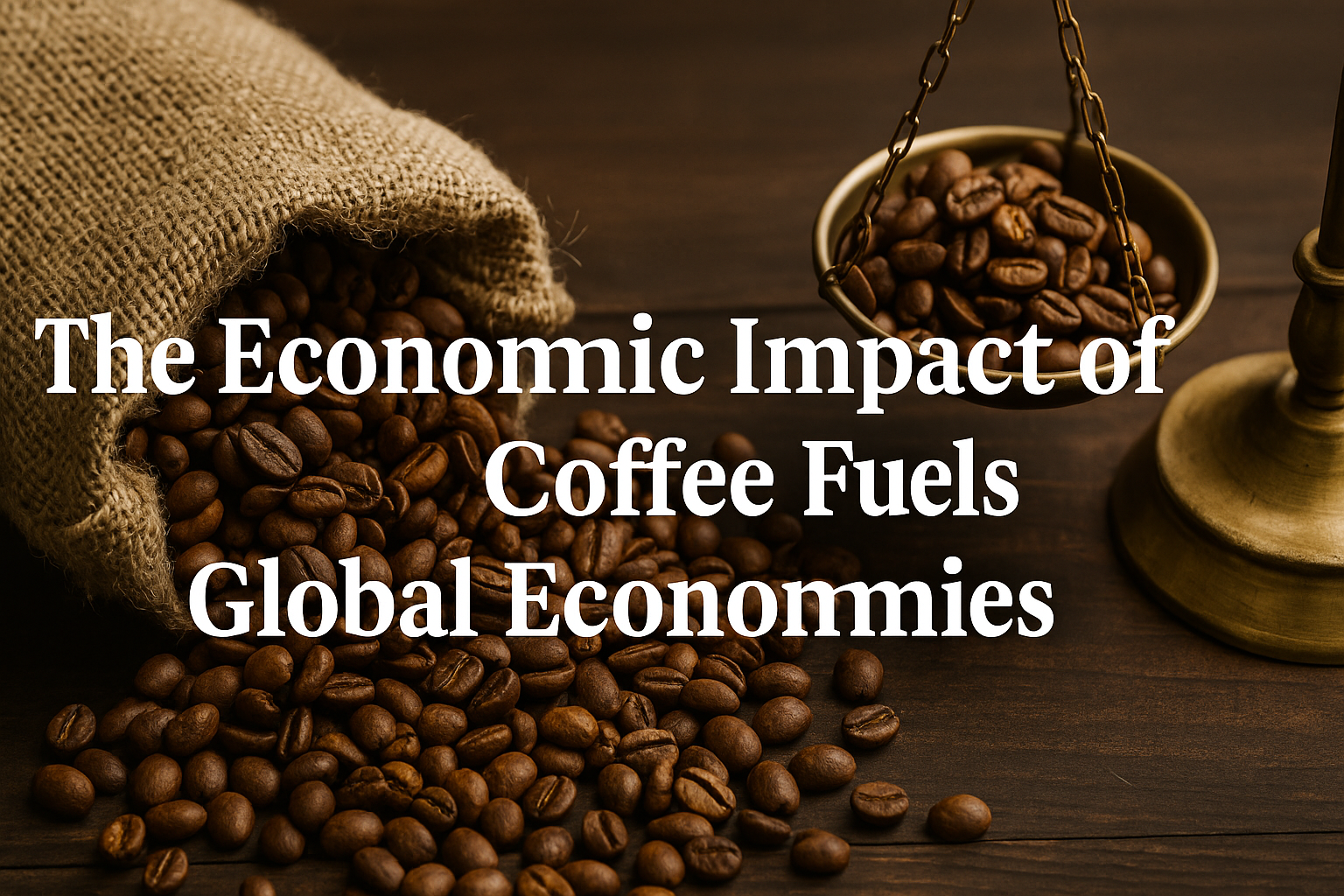Coffee is more than just a morning ritual; it’s a vital commodity that fuels economies across the globe. From smallholder farmers to multinational corporations, the coffee industry impacts millions of livelihoods and national GDPs. Let’s explore how coffee shapes the world’s economy.
Coffee as a Global Commodity
- Coffee is the second most traded commodity after oil.
- The global coffee market is valued at over $120 billion annually.
- More than 125 million people depend on coffee for their livelihoods.
The industry encompasses multiple sectors: farming, processing, exportation, roasting, retail, and café services.
Major Coffee-Producing Countries
- Brazil – The world’s largest coffee producer, known for both Arabica and Robusta beans.
- Vietnam – The leading Robusta producer.
- Colombia – Famed for high-quality Arabica.
- Ethiopia – The birthplace of coffee, producing unique heirloom varieties.
- Honduras, Peru, and Indonesia – Also significant producers.
Economic Contribution
In many producing countries, coffee accounts for:
- A significant portion of export earnings.
- Employment for millions of workers.
- Key roles in rural development and poverty alleviation.
For example, in Ethiopia, coffee represents approximately 30% of total exports.
Coffee and Smallholder Farmers
- About 80% of the world’s coffee is produced by smallholder farmers.
- These farmers typically own less than 5 hectares of land.
- The industry supports both subsistence living and global trade.
However, smallholders face challenges such as:
- Price volatility.
- Climate change impacts.
- Limited access to markets and financing.
The Role of Specialty Coffee
The rise of specialty coffee—focusing on quality, sustainability, and transparency—has introduced:
- Higher premiums for producers.
- Direct trade relationships between farmers and roasters.
- Increased focus on sustainable practices.
Consumers’ willingness to pay more for ethically sourced, high-quality coffee helps drive positive economic change.
Coffee’s Impact on Consumer Markets
Developed Economies
- Coffee consumption supports hospitality sectors.
- Generates billions in revenue from coffee chains, independent cafés, and retail products.
- In the United States alone, the coffee industry employs over 1.7 million people.
Emerging Markets
- Rapid growth in consumption, particularly in Asia.
- Increased demand for specialty coffee in urban centers.
- New opportunities for local cafés and roasteries.
Sustainability and Economic Stability
Sustainability efforts aim to ensure long-term economic viability for coffee producers:
- Fair Trade certification for ethical sourcing.
- Rainforest Alliance for environmental standards.
- Initiatives to combat the effects of climate change on coffee cultivation.
These measures help stabilize producer incomes and promote environmentally responsible practices.
Challenges in the Coffee Economy
- Price Crises: Coffee price fluctuations can devastate smallholder incomes.
- Climate Change: Threatens traditional growing regions.
- Labor Concerns: Exploitation and child labor issues persist in some regions.
The Future of Coffee Economics
- Increasing demand for sustainable and traceable products.
- Growing use of technology in farming (e.g., precision agriculture).
- Expansion of domestic coffee consumption in producing countries.
Final Thoughts
The coffee industry is a complex global network that affects economies, societies, and individuals across continents. From rural farmers to urban baristas, coffee is a driving force of economic activity and cultural connection.
By supporting sustainable and ethical coffee practices, consumers can help ensure a thriving, equitable coffee economy for future generations.
